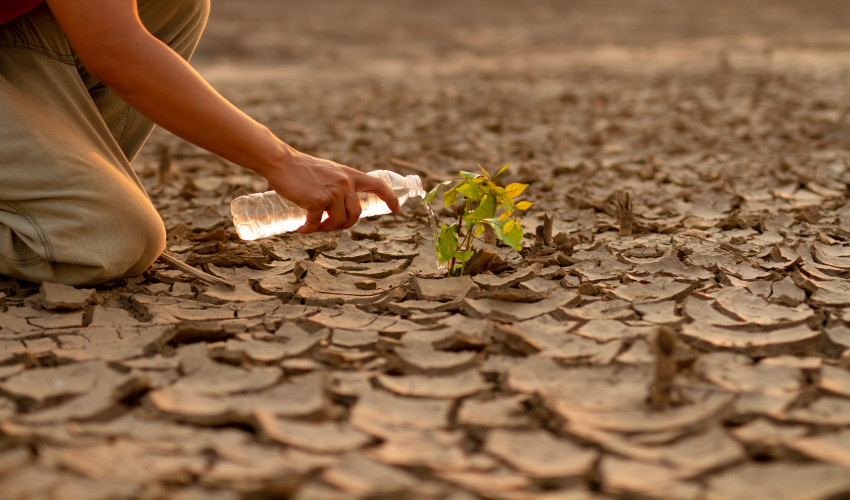Illustration: The Global Polycrisis is a complex crises that we face together, including the climate crisis (Source: Piyaset/Shutterstock)
The world is currently in a complex and intertwined series of crises, collectively known as the Global Polycrisis. This term, popularized by historian Adam Tooze of Columbia University of New York, encapsulates the intricate interplay of economic, financial, and environmental challenges that have escalated to a global scale.
As Amalia Adininggar Widyasanti, Deputy for the Economic Affairs at the Ministry of National Development Planning/Bappenas, highlighted in a 2024 Central Development Coordination Meeting, "This geo-political and geo-economic condition has triggered various negative spillover effects in the economic, financial, and environmental sectors, which are transmitted from one country to another. This is what is known as the Global Polycrisis."
The manifestations of this crisis are evidence in various countries. China's economic growth has decelerated from its previous 7% range to a projected 5% and is expected to decline further. The decoupling trend in China-US value chains, coupled with reshoring to US allies and onshoring within the US, is exerting additional pressure on China's economic growth.
Understanding the Global Polycrisis
The Global Polycrisis is not merely a collection of isolated crises; it is a systemic crisis that each challenge exacerbates and is influenced by others. Some of the crises contribute to the global polycrisis include:
Climate crisis: Extreme climate change threatens food security, water resources, and ecosystems.
Health crisis: The COVID-19 pandemic has exposed the vulnerabilities of global health systems and the transnational nature of infectious diseases.
Economic crisis: Global economic instability, high inflation, and mounting national debts threaten economic growth and societal well-being.
Geopolitical crisis: Armed conflicts, great power competition, and political instability in various regions disrupt global supply chains and trigger mass migration.
The impacts of the global polycrisis are far-reaching and complex. It tends to exacerbate inequalities between rich and poor nations, as well as between privileged and disadvantaged groups within societies. Additionally, the potential for food insecurity is heightened as climate change, conflicts, and disruptions to supply chains can lead to food shortages and famine in many countries.
The threat to international peace and security is another significant consequence of the global polycrisis, as it can fuel armed conflicts and political instability, ultimately jeopardizing global peace and security.
Understanding and identifying the global polycrisis is crucial. By recognizing the root causes and interconnections of various crises, policymakers can develop more comprehensive and effective solutions.
The Need for International Cooperation
The world is confronting numerous challenges that transcend national borders, ranging from global economic stability and climate change to cyberattacks, terrorism, and food and water security. The need for international cooperation is more pressing than ever.
Cooperation requires leadership. Leaders have the influence to coordinate multinational responses to transnational issues.
Indonesia and Africa share many commonalities in facing the Global Polycrisis. Both regions are vulnerable to the impacts of climate change, possess rich biodiversity, and face challenges in economic development. However, both Indonesia and Africa also have immense potential to collaborate in finding solutions to global problems.
Therefore, both parties need to strengthen cooperation in various fields, such as trade, investment, renewable energy, and sustainable development. This cooperation is expected to contribute positively to global efforts to address the global polycrisis.
